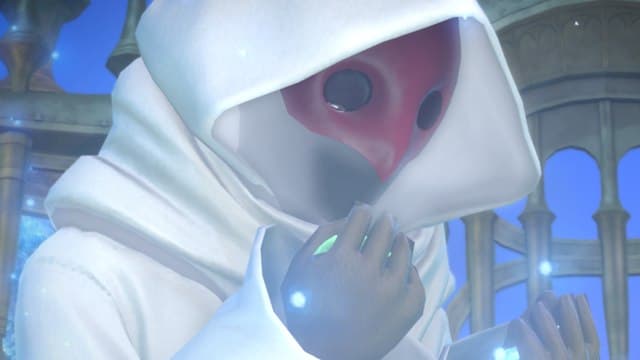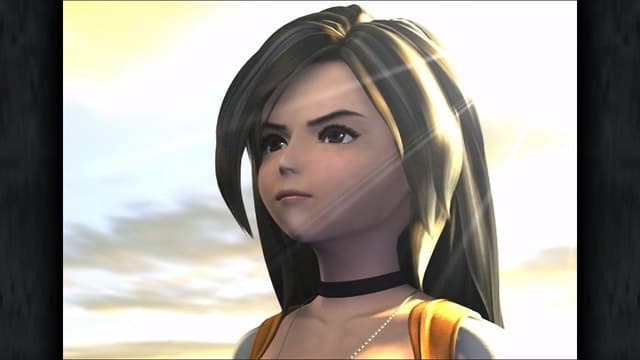Spoilers for the Final Fantasy XIII trilogy to follow.
Final Fantasy is likely the most important series in my life; it’s impossible for me to identify, let alone convey, how much it means to me. How it has shaped the person I am — my politics; my values, my belief systems. It doesn’t mean I don’t like to try my best, though. If I could summarize myself as simply yet accurately as possible, it would be that I’m an ambitious person who always tries. Ambition and drive are two of the biggest things I’ve learned from my personal role models, from my mother — a U.S. immigrant who has never had the choice of being ambitious because she’s had to survive — to my favorite fictional characters, like Final Fantasy XIII‘s Oerba Dia Vanille.
“Maybe we’d fall short. Maybe we’d never even come close. But someone, someday, would know we’d tried,” is a line that has stuck with me since I first heard it over a decade ago. As Final Fantasy XIII‘s narrator, Vanille has the unique opportunity to reflect on the game’s journey and how it shapes those who take it. I talk about Final Fantasy to anyone and everyone who knows me, but I don’t get the opportunity to often speak about my favorite character in the entire franchise. As I did last week with Final Fantasy VII‘s Aerith Gainsborough, I’d like to use this ode to reflect on Vanille — on why I love her so much and how she has shaped me as a woman who also is flawed, has struggled with feeling like an amalgamation of contradictions, and knows much less than she likes to think she does.
It took me two attempts before Final Fantasy XIII clicked for me — and, thankfully, it clicked so well that it’s one of my favorites in the series — but my connection to Vanille was almost immediate. I was drawn to her pink clothes, her bright hair styled in cute pigtails, her high-pitched voice. Maybe it’s because she felt like an older version of me, a girl who often wore pink, had her hair put in pigtails, and was known to barely speak but have a high-pitched and soft voice once I did.

I remember being in my high school theatre class. It was the second year I had taken the class, and I had spoken no more than twice throughout those years. I frankly can’t remember what we were discussing, but it made me overcome my social anxiety long enough to raise my hand and voice my indignation. I remember my teacher nodding his head in agreement with my ideas before saying that, once I spoke less femininely, the world would take me more seriously. I remember the anger I felt and the shame that overwhelmed me as a person who cries when she’s frustrated. I felt like I only gave him credibility when I failed to hide my emotions.
It’s hard to argue with the notion that Vanille is the worst person in Final Fantasy XIII‘s main cast, and perhaps even one of the most flawed main characters in the three-decades-old franchise. She’s a chronic liar and manipulator. Sometimes, she lies to protect others, especially her childhood friend Fang, but it’s often to shield herself from accountability. She’s empathetic, cute, and bubbly — aspects she weaponizes to disarm others. Her first appearance is her acting like she doesn’t know how to use a gun and playfully aiming it while saying, “bang!” But she’s caused — and continues to actively cause throughout Final Fantasy XIII — a great deal of suffering without needing it.
Her manipulative nature makes her a bit of a paradox because she does get what she wants: a world in which people constantly underestimate her — and yet this infuriates her. She’s constantly undermined by the men in the cast aside from Hope, a boy who is both younger than her and extremely vulnerable. As Snow hesitatingly gives her a gun, he advises that “if push comes to shove, keep everyone safe,” oblivious to how he’s the one playing war hero and Vanille is the one who has been on the front lines of war.
Although Sazh calls everyone a kid, he especially means it when he says it to her and Hope. “A kid like you would not understand,” he tells her. At one point, he explicitly tells her to grow up. Both times, her response is to pout and play along despite her protests. While Hope has the excuse of actually being a kid, Vanille is 19 years old at the start of the story. And Sazh is right — though she’s childish not in her nature, but in her unwillingness to take responsibility for her actions.
She commits many mistakes because she knows much less than she thinks she does. She becomes overwhelmed with guilt over her mistakes to the point that she offers to be killed for them, unable to come up with another solution to redeem herself. When she’s told it’s not a practical solution that erases any of the pain she’s caused, she cries and screams that she doesn’t know what to do.

Before Vanille, I didn’t know how much I needed to have a woman who sometimes doesn’t know, period, to look up to.
Women were long portrayed in storytelling as two extreme possibilities: innocent or evil. In some subtle and not-so-subtle ways, that dichotomy is still present in many stories. While we’re seeing many of the most nuanced female characters the world has known thus far, the diluting, objectification, and oversimplification of women is still a prominent issue. This is especially the case in a storytelling medium that is improving but still offers relatively scarce representation for women; last year’s E3 saw only 5% of marketed video games present women protagonists, after all.
Media influences how we perceive ourselves and the rest of the world — and growing up loving video games certainly impacted how I saw myself. For years, I harbored guilt over what I now know is a simple fact of life: that there are a million aspects to our individual personalities, sometimes in contradiction, and that we all have different personalities with different people. As a little girl, I was convinced I had to be one thing to everyone. A small, quiet, soft-spoken girl who dedicated herself only to her studies is what everyone had known for years, so I couldn’t break out of that even when I wanted to. I would lie about my interests, my hobbies, my passions in order to please people and avoid conflict. I convinced myself to not be loud; to not take up space; to not make any mistakes — and to take it incredibly poorly when I inevitably did. That I betrayed the image others had formed of me was not on them for their preconceived notions, but on me for being false — for being terrible enough to not meet the expectations of others.
These are all things I still struggle with, especially as a queer woman of color in the video games industry. But it’s due to the existence of incredibly complicated women like Vanille that I’ve been able to figure myself out and become someone I’m occasionally proud of. While discovering oneself is a lifelong journey, I’m certain I wouldn’t know myself as well as I do now if it weren’t for her. I’m 23 now and much better at allowing myself to take up space and voice my opinions. I share Vanille’s tendency to internalize mistakes and feel tremendously guilty over them. But, like Vanille by the end of the story, I’ve also accepted I will constantly make them — and that there are better ways I can account for my failures.

On a subconscious level, looking back, I think I also related to her as a queer person. At the time I played Final Fantasy XIII, I was no more than 12 years old and knew very little about myself. The concept of queerness, and, specifically, bisexuality, took me many more years to understand — let alone understand as an intricate part of me. That I came away from the game invested not in the relationship between Snow and Serah, but rather Fang and Vanille didn’t register as something different or odd.
But it also didn’t register as what it likely was: a yearning for not just someone like Fang, but also a healthy, supportive, and romantic relationship between two women. Final Fantasy XIII never officially calls the two lovers, but it’s not made a subtle secret, either. Fang was originally created as a man and her gender was changed by the end of development — but her dynamic with Vanille wasn’t. In one of the series’ most romantic lines, Fang says she would, “tear down the sky” if it’ll save Vanille. By the end of the trilogy, it is revealed in a novella that the two are living together in the remote wilderness. Throughout every game, they are either risking their lives to find their way to each other or are inseparable.
In a series rather conservative about queerness, Fang and Vanille were as explicit as could likely be afforded at the time. They were one of the first examples — if not the first example — I saw of a relationship in which two women are aware of each other’s most significant flaws, mistakes, and regrets, yet choose to love each other and push each other to be better people regardless. While their relationship could’ve been more explicit, this doesn’t take away from the impression it made on me as a little girl.
You May Also Like:
- An Ode to Kaidan Alenko
- Final Fantasy XIII Established the Best Aspects of Final Fantasy VII Remake
- Honey Bee Inn is the Queer Space Final Fantasy VII Remake Desperately Needed

In Vanille’s deeply-rooted and undeniable flaws, I recognized the importance of actively trying to be a better person. A better friend, colleague, professional, daughter, and the many other roles I embody. It’s not easy, and it’s not something I always succeed in. On some days, it’s hard for me to be a person at all. But, when I leave this world, I want to be remembered as someone who tried.
Even if I fall short, even if I don’t come close to some people — that’s fine. That’s what it means to be human, after all. I’m a deeply flawed person, like Vanille and everyone else around me. But it’s important to use the gift of living to try at all. As she says: “Even if we don’t know what’ll happen, we have to keep our dreams alive. Have something to look forward to, you know?”
It’s figures like Vanille who have taught me how vital it is to dream and to pursue those dreams. To not “face it later,” as she tells herself for much of her life; to instead prefer to, “fight and lose than give up without even trying.” To acknowledge when I’m scared and feeling unconfident, but push forward anyway without doing the disservice of being disingenuous to myself and the people I love. No one ever said the future would be easy. It just has to be worth it.


